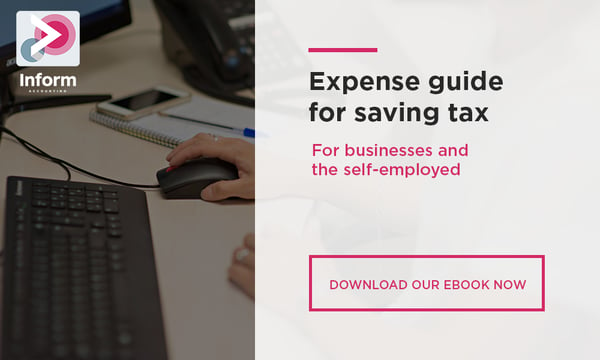BLOG
What can we expect from the Autumn 21 Budget on Wednesday?
-Jun-28-2023-10-24-05-7101-AM.jpg?width=670&name=marcin-nowak-iXqTqC-f6jI-unsplash%20(1)-Jun-28-2023-10-24-05-7101-AM.jpg)
Over the last year we’ve learnt that corporation tax will increase in 2023, and that there will be a 1.25% rise in National Insurance Contributions (NICs) from April 2022 paid by employers, employees, self-employed and for those with share dividend income. Personal allowances have been frozen at £12,570, basic rate at £37,700 and the higher rate at £50,270 until 2026.
More tax rises on Wednesday?
Chancellor Rishi Sunak has stated the need to "fix" the nation's finances as the economy emerges from the COVID-19 pandemic, declaring: "Our recovery comes with a cost."
On Wednesday we can expect further tax rises to be announced in the Budget to fund the support given for the vaccine rollout, the Furlough and self-employed support schemes.
So what are the tax planning options available for companies and individuals?
For companies it is all about the most tax efficient way of extracting profits such as dividends versus salary, contributions to pensions and receiving tax efficient benefits. Also important is utilising capital allowances and thinking carefully about the timing of expenditure.
For the self-employed, protective claims for tax credits should be considered if profits fluctuate.
If you are married, options are available to fully utilise personal allowances and ownership of income producing assets such as investments and rental properties.
One crafty way for the Chancellor to bring in extra tax revenue without raising headline tax rates would be to limit some of the generous tax breaks that are currently available. He may therefore consider some of the measures suggested by the Treasury Select Committee, or the Office of Tax Simplification (OTS) last year.
The Treasury Select Committee specifically drew attention to the cost of pension tax relief (£41 billion in 2019) and capital gains tax (CGT) private residence relief (£25 billion) so we can perhaps expect further restrictions to those reliefs. The OTS have carried out a detailed review of both CGT and inheritance tax (IHT), so we anticipate changes to those taxes to bring in extra revenue.
Something to listen out for is a possible change to the CGT rules when assets are transferred on death. Currently assets such as the family home or the family business are transferred at market value at the date of death without CGT being payable. It has been suggested that instead of market value the assets are transferred at the deceased’s base cost, which might be just £100 in the case of shares in the family company. Although there would be no CGT payable at the time the effect would be to create a large potential CGT bill for the next generation.
When it comes to pensions there are rumours yet again that higher rate relief for contributions into personal pensions may be removed and replaced with flat rate tax relief of say 25%. That would encourage basic rate taxpayers to save more in their pension at the expense of those paying tax at 40% or 45%. Higher rate taxpayers with spare cash should perhaps consider putting more into their pensions before Budget Day.
Personal pension contributions remain tax efficient for all. Company contributions to an employee's pension will attract corporation tax relief and will be free of income tax and national insurance for the employee (up to certain limits). Individuals can claim relief from income tax and national insurance for contributions to personal pension schemes (subject to certain limits).
Get ahead of the game with efficient tax planning
These are just a few of the options for planning ahead and now is the time to sit down and arrange your affairs to ensure you are as tax efficient as you can be.
We would be delighted to work out a plan with you so please get in touch with our Business Development Manager on 0121 295 8884 or at charlie.sangha@informaccounting.co.uk to find out how we can help.




.jpg?width=1500&height=1000&name=amy-hirschi-K0c8ko3e6AA-unsplash-(5).jpg)

